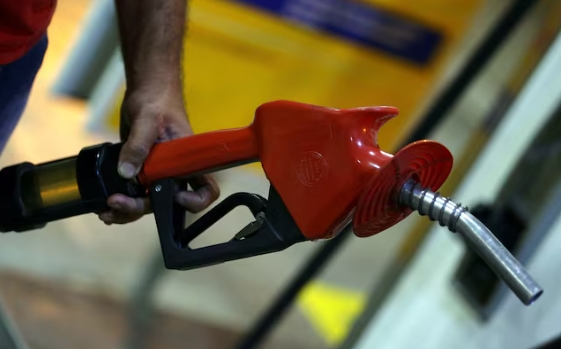
An employee holds a gas pump at a petrol station in Sao Paulo, Brazil, November 8, 2016.
Mines and Energy Minister Alexandre Silveira highlighted the significance of the new policy, stating: "The change in the biofuels mandate will make Brazil gasoline self-sufficient for the first time in 15 years." This shift is expected to reduce Brazil’s reliance on imported gasoline, addressing an external gasoline deficit of 872,000 cubic meters in 2024. According to Amance Boutin, business development manager at Argus, the 3% increase in ethanol blend is projected to cut gasoline demand by 1.33 million cubic meters, enabling Brazil to achieve self-sufficiency in gasoline.
The decision follows earlier concerns in 2025 when the CNPE maintained the biodiesel blend at 14% due to potential impacts on food prices. However, tests conducted by the Ministry of Mines and Energy in March confirmed that a 30% ethanol blend delivers consistent performance and environmental benefits. Daniel Amaral, director of economics and regulatory affairs at Abiove, a soy industry group, noted: "We see Brazil increasingly becoming a global leader in the decarbonization process."
Brazil’s biodiesel is primarily derived from soybeans, which account for 70% of production, while ethanol is produced from sugarcane and, more recently, corn. The International Energy Agency emphasizes that biofuels like ethanol and biodiesel are vital for reducing greenhouse gas emissions in the global transport sector. Aprobio, representing biofuels producers, stated that the policy strengthens Brazil’s energy security by reducing dependence on petroleum-based fuels.
Amance Boutin, speaking at the Argus biofuels and feedstocks Latin America conference in Sao Paulo, commented: "The timeline is short, but I think the government is betting on the generation capacity of the corn ethanol industry." Grupo Potencial, a biofuel producer, added: "The advancement of biodiesel is strategic for national energy security, especially in the face of recent geopolitical instability, such as the conflicts in Ukraine and the Middle East."
The policy has been welcomed by renewable energy advocates, who see it as a step toward sustainable energy practices. The increased biofuel blends are expected to support Brazil’s environmental goals while bolstering its energy independence.